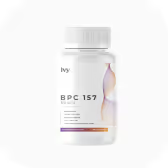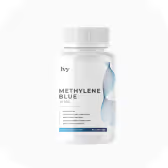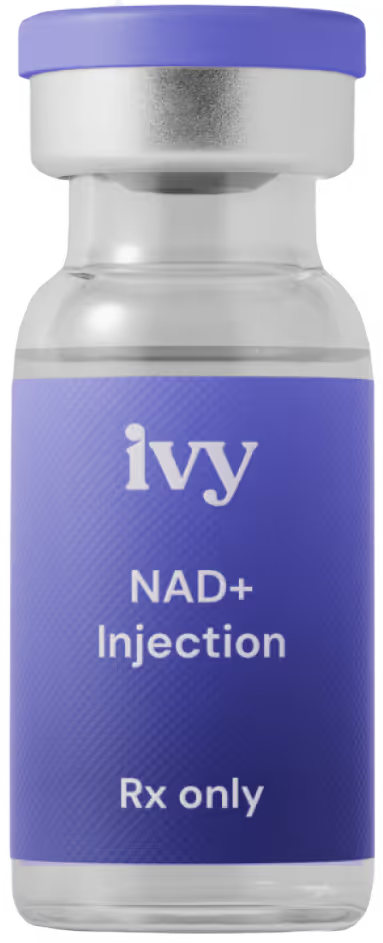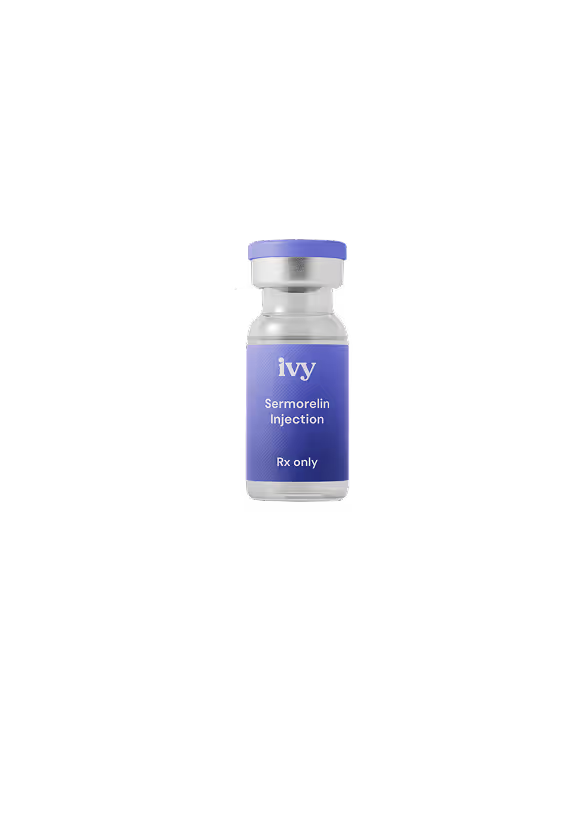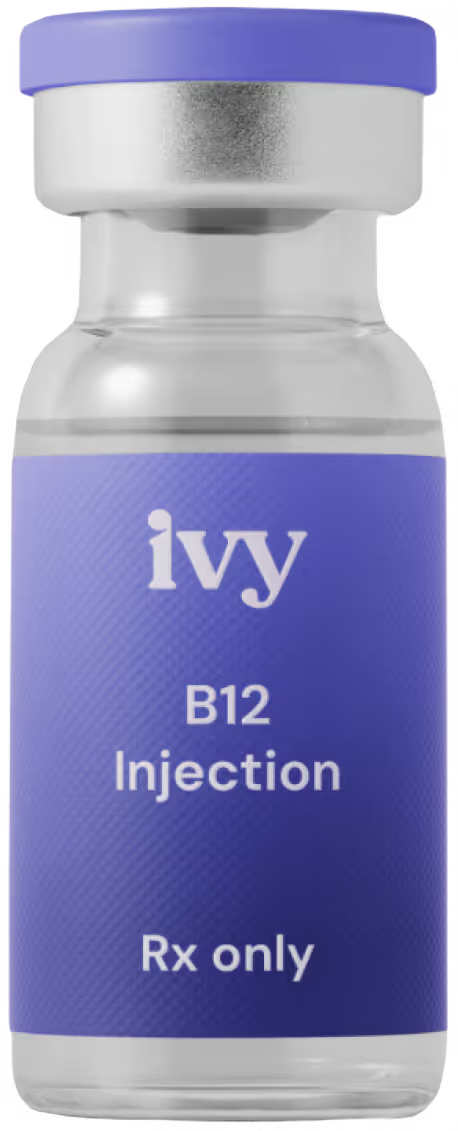- EXPLORE
- Weight loss
- Anti-aging
- Peptides
Peptide
OUR PRODUCTS - Supplements
Supplements
Longetivity medication, personalized to you
personalized to you
Weight loss
Longetivity
Weight loss
Longetivity
Weight loss
Longetivity
Weight loss
Longetivity
Weight loss
medication,
personalized to you
Longetivity
medication, personalized to you
This is more than just the beginning — it’s where your personalized care journey truly takes shape, tailored to your unique needs and goals.
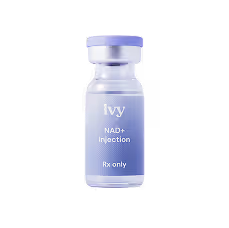
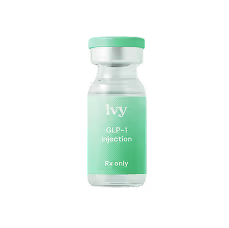
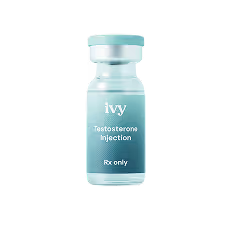
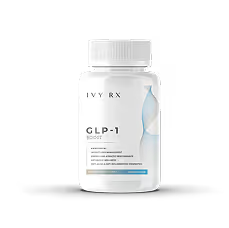

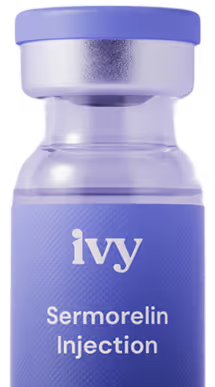
Don’t just live longer, live healthier
Sermorelin: Important Safety Information
1. Introduction
- What is Sermorelin?
Sermorelin is a synthetic peptide analog of growth hormone–releasing hormone (GHRH). It works by stimulating the pituitary gland to produce and secrete natural growth hormone (GH). - Regulatory Status
Sermorelin may be prescribed or compounded by certain healthcare providers but may not be approved by the U.S. Food and Drug Administration (FDA) for all uses. If you prefer only FDA-approved medications for your condition, please consult your healthcare provider for alternatives.
2. Potential Benefits & Indications
- Common Uses
Some practitioners use sermorelin to help address growth hormone deficiencies, promote lean body mass, support energy levels, or assist with certain aspects of aging. - Limitations
The efficacy of sermorelin for anti-aging or athletic performance enhancement is not conclusively established in large-scale clinical trials. This product is not intended to diagnose, treat, cure, or prevent any disease beyond those conditions specifically recognized by your healthcare professional.
3. Contraindications
You should not use sermorelin if you:
- Have an active malignancy, especially related to the pituitary gland or hypothalamus.
- Have a known hypersensitivity or allergy to sermorelin or any of its components.
- Are pregnant, planning to become pregnant, or breastfeeding, unless advised otherwise by a qualified healthcare professional.
- Have severe or unstable medical conditions (e.g., uncontrolled diabetes, advanced kidney or liver disease) without close medical supervision.
4. Warnings & Precautions
-
- Not FDA-Approved for All Uses
- Sermorelin may be used off-label for certain conditions. Its safety and efficacy for those uses are not fully evaluated by the FDA.
-
- Consult a Healthcare Professional
- Provide your full medical history to your healthcare provider before starting sermorelin.
- Discuss any other medications, supplements, or therapies you are using, as these can impact sermorelin’s efficacy or risk profile.
-
- Pre-Existing Conditions
- If you have diabetes, thyroid disorders, or any endocrine-related condition, careful monitoring may be needed because sermorelin can affect hormone balance.
-
- Use in Specific Populations
- The safety of sermorelin in children, pregnant women, or nursing mothers has not been thoroughly established outside of specific medical indications.
- Use only under professional guidance if you belong to these populations.
5. Potential Side Effects
Contact your healthcare provider if any symptoms become severe or do not resolve:
- Injection Site Reactions
- Redness, pain, swelling, or itching at the site of injection.
- If signs of infection (e.g., warmth, pus, significant tenderness) occur, seek medical attention.
-
- Flushing or Headaches
- Some people may experience flushing, mild headaches, or lightheadedness.
- If headaches are persistent or severe, discontinue use and consult your healthcare provider.
-
- Nausea or Dizziness
- Occasional nausea or dizziness can occur.
- Discontinue and speak with a healthcare provider if these symptoms worsen or persist.
-
- Increased Hunger
- A change in appetite or mild GI discomfort may be noticed.
-
- Allergic Reactions
- Rash, hives, swelling of the face, lips, tongue, or throat, or difficulty breathing may signal a serious allergic reaction.
- Seek immediate medical care if anaphylaxis is suspected.
6. Drug Interactions
- Other Medications/Supplements
- Sermorelin may interact with medications that influence the endocrine system, glucose metabolism, or other peptides/hormones.
- Always inform your healthcare provider about all prescription, over-the-counter medications, and supplements you use.
7. Administration & Dosage
-
- Administration Method
- Typically administered as a subcutaneous (under the skin) injection.
- Injections should be performed as directed by a qualified healthcare professional or according to detailed instructions provided.
-
- Dosage
- Dosage and frequency vary based on individual factors such as age, body weight, and treatment goals.
- Do not exceed prescribed dosage without consulting your healthcare provider.
-
- Timing & Technique
- Your healthcare provider may advise specific timing (e.g., bedtime) to optimize the natural growth hormone cycle.
- Proper injection technique is essential to minimize side effects and ensure effectiveness.
8. Monitoring & Follow-up
- Lab Tests
- Your healthcare provider may recommend periodic blood tests (e.g., IGF-1 levels) to monitor hormone levels and treatment response.
- Physical Check-ups
- Regular check-ups may be necessary to track weight, body composition, or other health indicators.
9. Storage & Handling
- Storage
- Store sermorelin according to the temperature guidelines provided on the label or by your pharmacist (often refrigerated).
- Shelf Life
- Do not use beyond the expiration date. Discard if the product changes color or appears contaminated.
- Safety
- Keep all medications out of the reach of children.
- Never reuse needles or syringes; follow proper disposal instructions.
10. Adverse Event Reporting
- Severe Reactions
- Discontinue use and seek immediate medical attention if you experience severe or unusual side effects.
- FDA Reporting
- You or your healthcare provider can report suspected adverse reactions to the FDA’s MedWatch Program at 1-800-FDA-1088 or via www.fda.gov/medwatch.
11. Disclaimer
- Not Evaluated by the FDA
- These statements have not been evaluated by the Food and Drug Administration, and sermorelin is not FDA-approved to diagnose, treat, cure, or prevent any condition outside of recognized uses.
- Consult a Professional
- This information is for educational purposes only and should not replace professional medical advice, diagnosis, or treatment.
- Individual Variation
- Responses to sermorelin may vary. Always follow the advice of a qualified healthcare provider regarding initiation, continuation, or modification of therapy.
Questions or Concerns?
If you have any questions regarding sermorelin injections, dosage, benefits, or potential side effects, please consult your qualified healthcare provider.

NAD+ Injection: Important Safety Information
1. Introduction
Nicotinamide Adenine Dinucleotide (NAD+) is a coenzyme found in all living cells, involved in critical metabolic processes. NAD+ injections are sometimes used for various wellness purposes. Please note that NAD+ injections may not be evaluated or approved by the U.S. Food and Drug Administration (FDA) for safety, effectiveness, or quality. If you have any questions about NAD+ therapy, consult a qualified healthcare professional.
2. Purpose & Benefits
- NAD+ may be administered for potential support of energy metabolism, cellular repair, or other wellness goals.
- This information does not constitute medical advice regarding indications or dosage and is provided for educational purposes only.
3. Contraindications
You should not receive NAD+ injections if you:
- Have a known allergy or hypersensitivity to NAD+ or any of the injection components.
- Are pregnant, planning to become pregnant, or breastfeeding, unless specifically advised by your healthcare provider.
- Have severe or unstable medical conditions (e.g., uncontrolled diabetes, end-stage renal disease, significant heart or liver disease) without first consulting a physician.
4. Potential Risks & Side Effects
While many individuals tolerate NAD+ injections well, side effects can occur. Contact your healthcare provider immediately if any symptoms worsen or become unmanageable. Potential side effects include:
- Injection Site Reactions
- Redness, swelling, or pain at the injection site.
- Bruising or minor bleeding.
-
- Gastrointestinal Disturbances
- Nausea, vomiting, or diarrhea.
- Abdominal discomfort or cramping.
-
- Headache or Dizziness
- May occur shortly after injection.
- If severe or persistent, seek medical attention.
-
- Changes in Energy Levels
- Some individuals report fatigue or jitteriness, especially if combined with other stimulants.
-
- Allergic Reactions
- Rash, itching, swelling (including of the face, lips, tongue, or throat), or difficulty breathing.
- Seek emergency care if you suspect a serious allergic reaction (anaphylaxis).
5. Warnings & Precautions
- Not FDA-Approved
-
- NAD+ injections have not been evaluated by the FDA for safety or efficacy.
- If you prefer FDA-approved treatments, discuss alternatives with your healthcare provider.
-
- Medical Supervision Required
- NAD+ injections should be administered by a qualified healthcare professional or under professional guidance, following all recommended safety protocols.
-
- Pre-Existing Conditions
- Inform your healthcare provider of any heart, kidney, liver, or other medical conditions.
- Discuss any concerns regarding potential interactions with existing medications or supplements.
-
- Use in Specific Populations
- Safety and effectiveness in children have not been established.
- Pregnant or nursing women should consult a physician before use.
-
- Monitor for Unusual Symptoms
- Report any unexpected changes in mood, behavior, or physical health (e.g., extreme fatigue, chest pain, shortness of breath).
6. Drug Interactions
- NAD+ may interact with certain prescription or over-the-counter medications, herbal supplements, or dietary regimens.
- Tell your healthcare provider about all medications and supplements you take before starting NAD+ injections.
- Watch for potential changes in how other medications work, as NAD+ could theoretically affect metabolic pathways.
7. Administration & Dosage
- Administration Method
- Typically administered intramuscularly (IM) or Subcutaneous (SUBQ) under medical supervision.
- Proper aseptic technique is critical to minimize risks of infection or injection site complications.
- Dosage
- The appropriate dose varies based on individual factors (age, weight, underlying health conditions).
- Follow the dosage and schedule as prescribed by your healthcare provider.
- Do not self-adjust or discontinue injections without consulting your provider.
8. Reporting Adverse Events
- If you experience concerning side effects or a serious adverse event, seek immediate medical care.
- You can also report suspected adverse reactions to the FDA’s MedWatch Program at 1-800-FDA-1088 or at www.fda.gov/medwatch.
9. Additional Precautions & Tips
- Hydration: Staying well-hydrated may help mitigate some side effects like headaches or dizziness.
- Lifestyle Factors: Aim for a balanced diet, regular exercise, and healthy sleep to optimize any potential benefits of NAD+ therapy.
- Follow-Up: Schedule follow-up appointments or lab tests if your healthcare provider deems them necessary to monitor any changes while on NAD+ therapy.
10. Disclaimer
- These statements have not been evaluated by the Food and Drug Administration.
- NAD+ injections are not intended to diagnose, treat, cure, or prevent any disease.
- This document is for informational purposes only and is not a substitute for professional medical advice, diagnosis, or treatment.
For questions or concerns about NAD+ injections, potential benefits, or side effects, please consult a qualified healthcare provider.

Methylcobalamin (Vitamin B12) Injection: Important Safety Information
1. Introduction
- What Is Methylcobalamin?
Methylcobalamin is a biologically active form of Vitamin B12. It is often prescribed or administered to individuals with Vitamin B12 deficiency, or for certain neurological and hematological conditions. - Regulatory Status
In some cases, compounded forms of methylcobalamin have not been evaluated or approved by the U.S. Food and Drug Administration (FDA) for all potential uses. If you prefer or require an FDA-approved product, please consult your healthcare provider for alternatives.
2. Potential Benefits & Uses
- Common Indications
- Treating or preventing Vitamin B12 deficiency (e.g., pernicious anemia).
- Providing support for neurological health in certain conditions (e.g., peripheral neuropathy).
- Assisting with red blood cell formation and overall energy metabolism.
- Limitations
While many individuals benefit from methylcobalamin injections, this product is not intended to diagnose, treat, cure, or prevent any disease beyond uses recognized by healthcare professionals. Always consult your provider to determine if this therapy is right for you.
3. Contraindications
You should not receive methylcobalamin injections if:
- You have a known allergy or hypersensitivity to Vitamin B12, cobalt, or any ingredient in the formulation.
- You have Leber’s disease (hereditary optic nerve atrophy), as high-dose B12 supplementation could potentially worsen the condition.
- You are pregnant or breastfeeding without first discussing risks and benefits with your healthcare provider.
4. Warnings & Precautions
- Not FDA-Approved for All Uses
- Certain forms or dosages of methylcobalamin may be compounded and not specifically reviewed by the FDA.
-
- Consult a Healthcare Professional
- Inform your provider about your medical history, including any allergies, kidney or liver disease, or blood disorders.
- Discuss any other medications or supplements you are taking, as these may interact with B12 therapy.
-
- Pre-Existing Conditions
- Use caution if you have a history of hematological disorders, as your provider may require regular lab work (e.g., complete blood counts).
-
- Use in Specific Populations
- Safety in pregnant or nursing women has not been fully established for high-dose methylcobalamin.
- Pediatric use should be supervised by a qualified medical professional.
5. Potential Side Effects
While most people tolerate methylcobalamin injections well, side effects can occur. Contact your healthcare provider if you experience any of the following symptoms, especially if they are severe or persistent:
- Injection Site Reactions
- Redness, swelling, tenderness, or mild pain at the injection site.
- If signs of infection (e.g., warmth, pus, significant redness) develop, seek medical attention.
-
- Allergic Reactions
- Itching, rash, hives, swelling of the face/lips/tongue, or difficulty breathing.
- If you experience these signs, discontinue use and seek emergency medical care.
-
- Gastrointestinal Symptoms
- Nausea, diarrhea, or upset stomach may occur.
- Report severe or persistent gastrointestinal issues to your provider.
-
- Dizziness or Headache
- Some individuals may experience mild dizziness or headaches.
- If severe, stop use and consult a healthcare professional.
-
- Hypokalemia (Low Potassium)
- Very rarely, rapid improvement in anemia can cause shifts in potassium levels.
- Symptoms might include muscle weakness, irregular heartbeat, or confusion. Inform your provider if you experience these.
6. Drug Interactions
- Medication and Supplement Considerations
- Metformin, proton pump inhibitors, and other drugs can affect or be affected by B12 status.
- Always inform your healthcare provider of all medications (prescription and over-the-counter), vitamins, or herbal supplements you are taking.
7. Administration & Dosage
- Administration Method
- Typically administered intramuscularly (IM) or subcutaneously (SQ).
- Should be administered by a qualified healthcare professional or according to instructions provided by your medical team.
-
- Dosage
- Dosage and frequency vary based on individual needs (e.g., underlying deficiency, condition severity).
- Follow your provider’s directions precisely. Do not adjust the dose without medical guidance.
-
- Monitoring
- Periodic blood tests (e.g., serum B12 levels, complete blood counts) may be recommended to ensure the therapy is effective and safe.
8. Storage & Handling
- Temperature
- Store as indicated by your pharmacist or on the product label (often refrigerated or at controlled room temperature).
- Sterility
- Use only sterile, unexpired products.
- Do not reuse needles or syringes; dispose of them in approved sharps containers.
9. Adverse Event Reporting
- Immediate Care
- If you experience severe side effects (e.g., difficulty breathing, significant swelling, severe pain), seek immediate medical attention.
- FDA Reporting
- You or your healthcare provider can report suspected adverse reactions to the FDA’s MedWatch Program at 1-800-FDA-1088 or online at www.fda.gov/medwatch.
10. Disclaimer
- Not Evaluated by the FDA for All Uses
- These statements may not be reviewed by the FDA, and methylcobalamin injections are not FDA-approved to diagnose, treat, cure, or prevent any disease beyond recognized indications.
- Consult a Professional
- This information is for educational purposes only and does not replace medical advice, diagnosis, or treatment from a qualified healthcare provider.
- Individual Variation
- Treatment response and side effects may vary. Always follow the advice of your healthcare professional regarding therapy, dosage, and monitoring.
Questions or Concerns?
If you have any questions regarding methylcobalamin (Vitamin B12) injections, including their potential benefits, side effects, or dosage, please consult a qualified healthcare professional.

3 simple steps

1. Questionnaire
Answer a few questions about your symptoms and health history —100% online.

2. Prescription
A licensed medical provider will recommend the right treatment for you.

3. Delivery
If prescribed, your medication will be shipped discreetly from an FDA-registered pharmacy.
What our customers are saying
200,000+ members thriving and age defying
“NAD+ really helped me feel more energetic and has improved my health. I feel great!”
“My experience with IVY RX was simple and straightforward. I would have had to jump through so many hoops to get this same experience.“
Rosette was beyond helpful and the customer service is better than about any company I've used in any sector! Highly highly recommend. And the product (NAD) is amazing.
“I have been with this company for over a year and their customer service is above and beyond. I appreciate the sincere and kind representatives.”
Questions?
We’ve got the answers!
What if I need to cancel?
Absolutely! We understand that circumstances may change, and there are no long-term contracts or cancellation fees involved. We are committed to customer satisfaction.
Do I need insurance?
No, IVY RX does not require insurance. We keep things simple with transparent pricing, straightforward billing, and affordable generic options—making it easier than ever to take care of yourself.
Can I talk to a doctor?
Absolutely! You can quickly and securely message your care providers through our patient portal. Simply log in, choose your provider, and send them a message. It’s that easy!
Who are the healthcare providers?
All IVY RX affiliated doctors are board certified US-licensed healthcare professionals. The medical advisory board comprises experts in psychology, oncology, men's health, sexual health, neurology, and family medicine. Learn more about our medical advisory board here.
How are compounded medications sourced?
The treatments are compounded in pharmacies compliant with 503B/USP <797> standards. This ensures a high level of quality and safety throughout the entire process.

Note: These statements have not been evaluated by the FDA and are not intended to diagnose, treat, cure, or prevent any disease.


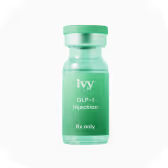

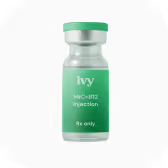


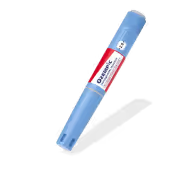

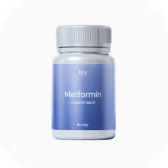

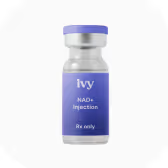
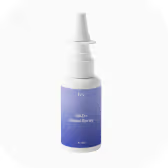

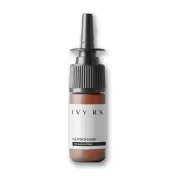
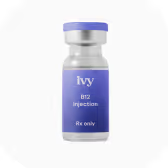
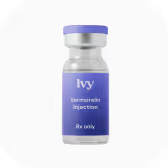
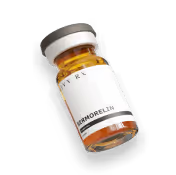
.avif)

